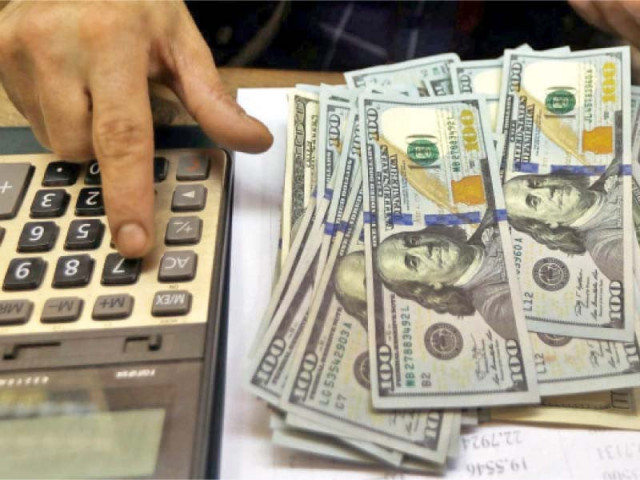Foreigners on selling spree in bond market
Pulled out $12m in a day in wake of sharp rise in Pakistan’s default risk

Taking cue apparently from a sharp rise in Pakistan’s default risk in global bond markets, foreign investors have returned to the selling counters in the domestic market, as they pulled out $12 million (Rs2.34 billion) by offloading Pakistan Investment Bonds (PIBs) in a single day.
Cumulatively, in the first 10 and a half month of the current fiscal year 2021-22, they have sold PIBs and T-bills worth a net $590.39 million, according to the central bank’s data on Tuesday.
“Pakistan’s default risk measured through the Credit Default Swap (CDS) has spiked to 16% in global bond markets,” Arif Habib Limited (AHL) Head of Research Tahir Abbas said while talking to The Express Tribune. “It (CDS) usually hovers around 6-8%.”
The yields on Pakistan’s Eurobond maturing in 2024 have also shot up to somewhere around 14-15% as compared to around 7-8% when the economy stood stable in the recent past.
BMA Capital Executive Director Saad Hashemy pointed out that such a sharp increase in the country’s default risk (to 16%) came after 2008. However, Pakistan has never defaulted on any international payments and it would find a way out this time around as well, he said.
“The 2008 financial crisis was worse as compared to the current one,” he said, adding that the country had managed to repay the matured Eurobond worth around $500 million in 2008.
“Foreigners are pulling out investment because of the recent sharp devaluation of Pakistani rupee against the US dollar … amid the ongoing political and economic uncertainty in the country.”
The domestic currency has nosedived 5.41% (or Rs10.05) to Rs195.74 against the US dollar in the inter-bank market during the past eight consecutive working days till Tuesday.
The pressure on the rupee is mounting due to the fast depletion of the country’s foreign exchange reserves. The reserves have dropped by around $7 billion in the past five months to a 22-month low at $10.3 billion.
With such low reserves, the country’s import capacity has shrunk to six weeks only from the usual three months of import cover.
The breakdown of data suggests that foreign investors have bought PIBs and T-bills worth $311.17 million in the current fiscal year to date. At the same time, they have sold bonds worth $901.56 million.
The background information elaborated that foreign investors were holding the sovereign bonds worth not more than a few hundred million dollars at present. So their continued selling may not cause a huge drain in the forex reserves.
In pre-Covid-19 year, they have invested a record high $3.61 billion in rupee-denominated bonds, but the pandemic made them panic and they aggressively pulled out almost all the then investment by August-September 2020.
PSX outflows
At the same time, foreign investors have continued to sell securities at Pakistan Stock Exchange (PSX) for the fifth consecutive year on a net basis.
They have sold stock worth net $485.20 million in the current fiscal year to date. Earlier, they sold stocks of value amounting to around $1 billion in the past four years, the data suggests.
In addition to the recently emerged political and economic uncertainty, the downgrading of Pakistan to the lesser advanced MSCI Frontier Market (FM) index about a year ago from the advanced Emerging Market (EM) index triggered the fresh round of foreign investment withdrawal from Pakistan.
Pakistani stocks were reclassified into the MSCI FM following market capitalisation of the selected stocks fell below the MSCI benchmark level, as investors from different walks of life continued to sell the stocks at lower prices at PSX.
Stockbrokers, however, stood optimistic that the foreign investors would stage a comeback at the local bourse once the ongoing political turmoil and economic instability are turned around as the stocks offer comparatively “higher returns compared to regional markets like India and China”, according to seasoned stockbrokers.
Published in The Express Tribune, May 18th, 2022.
Like Business on Facebook, follow @TribuneBiz on Twitter to stay informed and join in the conversation.



















COMMENTS
Comments are moderated and generally will be posted if they are on-topic and not abusive.
For more information, please see our Comments FAQ